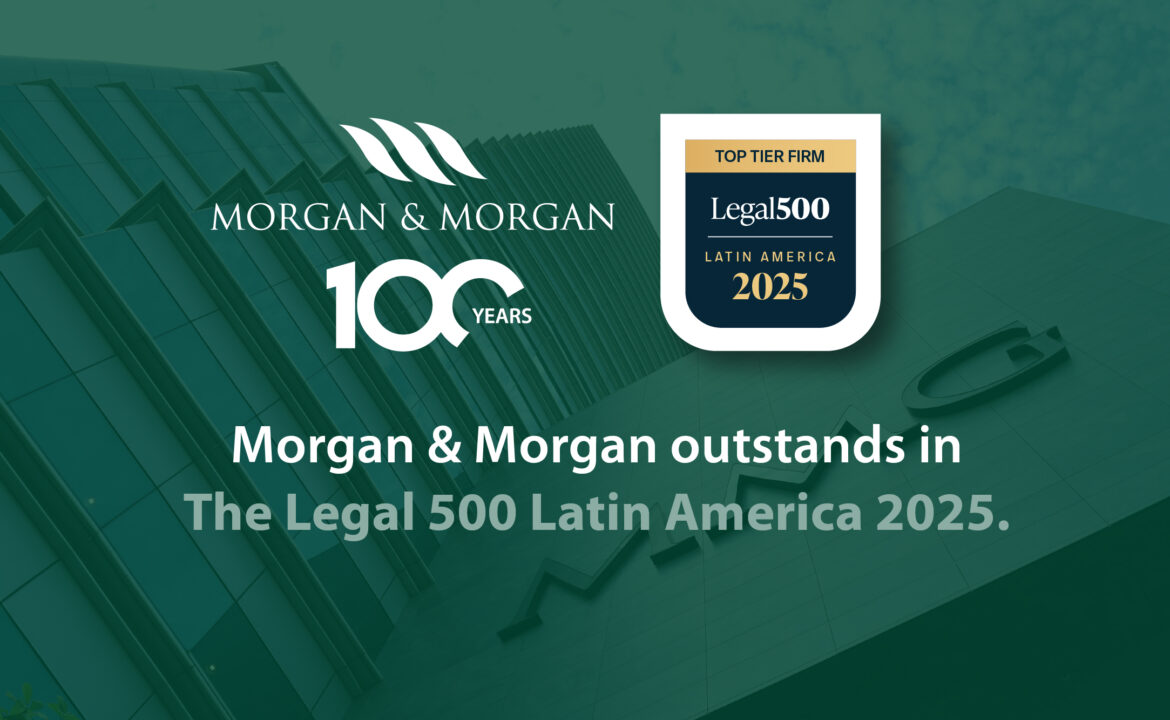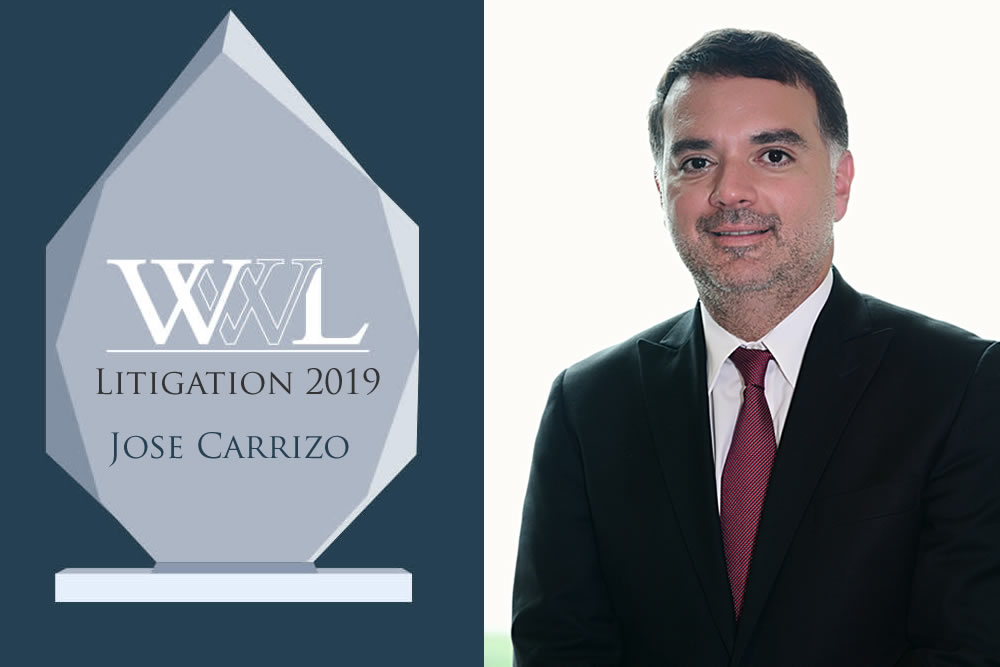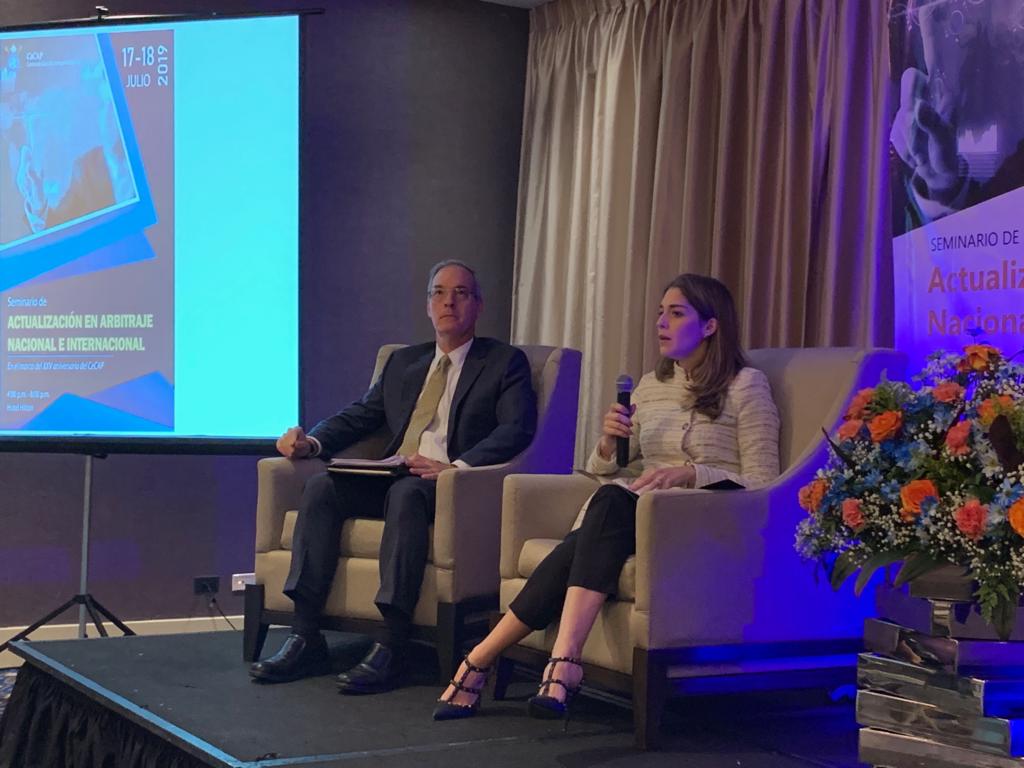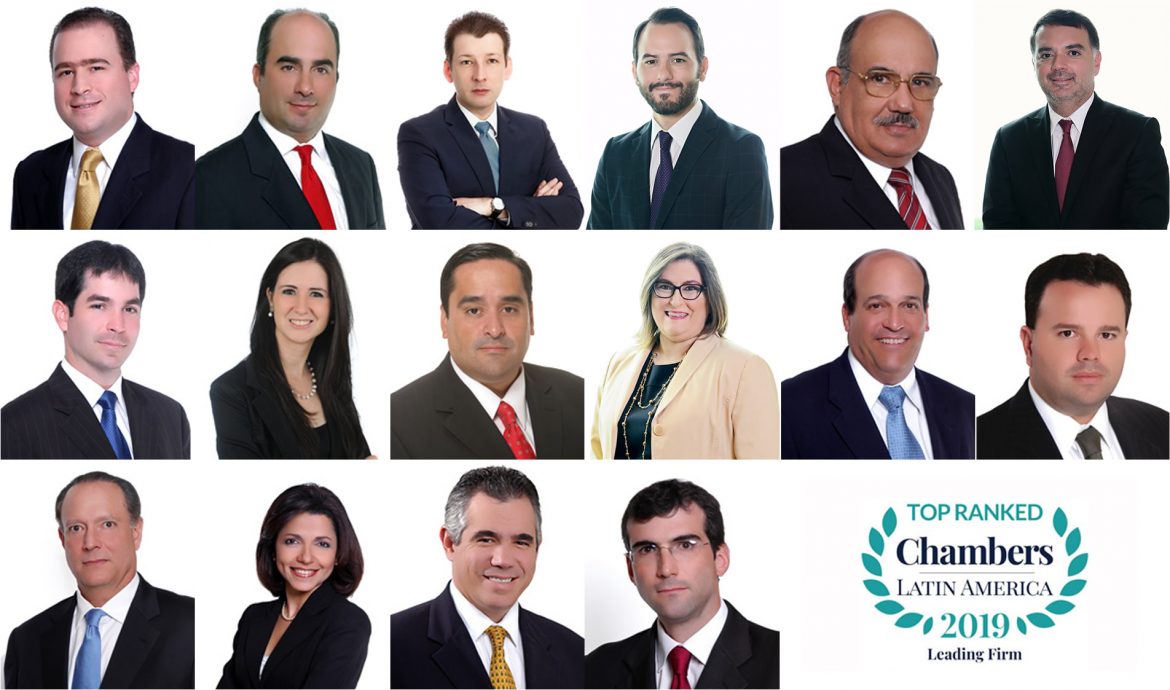Morgan & Morgan outstands in The Legal 500 Latin America 2025.
Panama, October 25, 2023. “Morgan & Morgan is a world-class law firm and, in addition to being the largest firm in Panama, has a group of terrific attorneys.” In number of ranked practices and individuals, Morgan & Morgan is Panama´s most recognized law firm in The Legal 500 Latin America 2025. With 40 individual rankings
- Published in News, Alejandro E. Chevalier, Allen Candanedo, Ana Castillo, Andres V. Mejía, Angelica Ortiz, Aristides Anguizola, Banking and Finance_news, Corporate Services_news, Energy and Natural Resources_news, Estate Planning_news, Fanny Evans, Francisco Arias, Francisco Linares, Inocencio Galindo, Intellectual Property_news, Jazmina Rovi, Jose Carrizo, Jose Rafael Reyes, Juan David Morgan Jr, Kharla Aizpurua, Labor Law_news, Laura Barrios, Litigation and Dispute Resolution, Luis Manzanares, Luis Miguel Hincapie, Luis Raven, Luis Vallarino, Maria Teresa Mendoza, Mayte Sanchez, Miguel Arias publi, Milagros Caballero, Nestor Broce, Orlando Tejeira, Ramon Varela, Raul Castro, Real Estate_news, Ricardo Aleman, Ricardo Arias, Roberto Lewis, Roberto Vidal, Securities and Capital Markets_news, Ship Finance and Registration_news, Shipping and Admiralty Litigation_news, Taxation_news
Morgan & Morgan Legal promotes Mayte Sanchez Gonzalez as a new partner in its Litigation and Dispute Resolution team.
Panama, December 29, 2021. Morgan & Morgan Legal is pleased to announce the recent promotion of attorney Mayte Sanchez Gonzalez as partner of the firm. This designation reinforces the firm´s notable practice in litigation and dispute resolution processes (including arbitration), and at the same time, reinforces its commitment to gender equality and equal opportunities in
Who´s Who Legal Thought Leaders Litigation 2019: Jose Carrizo
Panama, August 5, 2019. Jose Carrizo, partner and head of the Litigation and Dispute Resolution practice of the firm, was listed once again in the Who´s Who Legal Thought Leaders Litigation Guide 2019, a publication that highlights the skills and know-how of the best litigation lawyers worldwide, based on the number of nominations received by
Morgan & Morgan participated in seminar on National and International Arbitration
Panama, August 5, 2019. Mayte Sanchez, associate at the Litigation and Dispute Resolution practice group of Morgan & Morgan, was invited to participate as speaker in the National and International Arbitration Seminar, organized by the Conciliation and Arbitration Center of Panama (CeCAP, for its initials in Spanish). The activity, which was held as part of
Morgan & Morgan represented Electron Investment, S.A. in an arbitration process filed by Constructora Seli Panamá, S.A. before the International Chamber of Commerce
Morgan & Morgan was part of the team of lawyers that represented Electron Investment, S.A. (“EISA”), in an arbitration process filed by Constructora Seli Panamá, S.A. (“SELI”), before the International Chamber of Commerce (“ICC”). The request for arbitration was filed by SELI following certain disputes related to the contract for the construction of the tunnels
Morgan & Morgan distinguished as a Panamanian top law firm in Chambers Latin America 2019
Panama, September 25, 2018. Morgan & Morgan and sixteen attorneys of the firm were recognized in the Chambers Latin America 2019, guide of the best lawyers and law firms across 20 countries of Central America, the Caribbean, South America and Mexico. The firm has been ranked in the first Bands within the areas of Banking
- Published in 2018, Banking and Finance_news, Banking Law_publi, Energy and Natural Resources_news, Energy_publi, Estate Planning, Estate Planning_news, Intellectual Property_news, Litigation and Dispute Resolution, Litigation and Dispute Resolution_news, Mergers & Acquisitios, Mergers and Acquisitions_news, News, Projects, Projects_news, Real Estate, Real Estate_news, Securities and Capital Markets, Securities and Capital Markets_news, Shipping and Admiralty Ligitation, Shipping and Admiralty Litigation_news, Simon Tejeira
Morgan & Morgan represented an energy generation company in an arbitration process derived from an EPC Contract
Morgan & Morgan represented a major power generation company in a multi-million dollar arbitration lawsuit in which alleged damages were allegedly caused by the breach of an EPC Contract, where our client had counterclaims. Partner Jose Carrizo, and associates Mayte Sanchez and Nayubel Rivera, participated in this process.
Morgan & Morgan represented the Panamanian State in an arbitration process derived from a Work Contract related to public roads
Morgan & Morgan represented the Panamanian State on an arbitration lawsuit filed for the alleged non-payment of payments derived from a Work Contract related to public roads. Partner Omar Rodriguez and associate Mayte Sanchez, participated in this transaction.
- Published in 2017, Litigation and Dispute Resolution, Mayte Sanchez, Omar Rodriguez
Morgan & Morgan represented a company owner of a property in a civil process seeking rectification of boundaries and measures
Morgan & Morgan represented a company owner of a property with damages on its surface area by the neighbors, which require judicial action in search of rectification of boundaries and measurements, through the subsequent cancellation of the title of ownership. Partner Anibal Tejeira, and associate Miguel Rodriguez, participated in this process.
- Published in 2017, Anibal Tejeira, Litigation and Dispute Resolution, Miguel Rodriguez
Morgan & Morgan represented an oil company in a civil process regarding the possible execution of a judgement issued abroad
Morgan & Morgan acted as Panamanian legal counsel to an international oil company regarding the possible execution of a judgment issued abroad. Partners Jose Carrizo, Omar Rodriguez and Luis Vallarino, and associates Nayubel Rivera and Mayte Sanchez, participated in this process.
- 1
- 2










